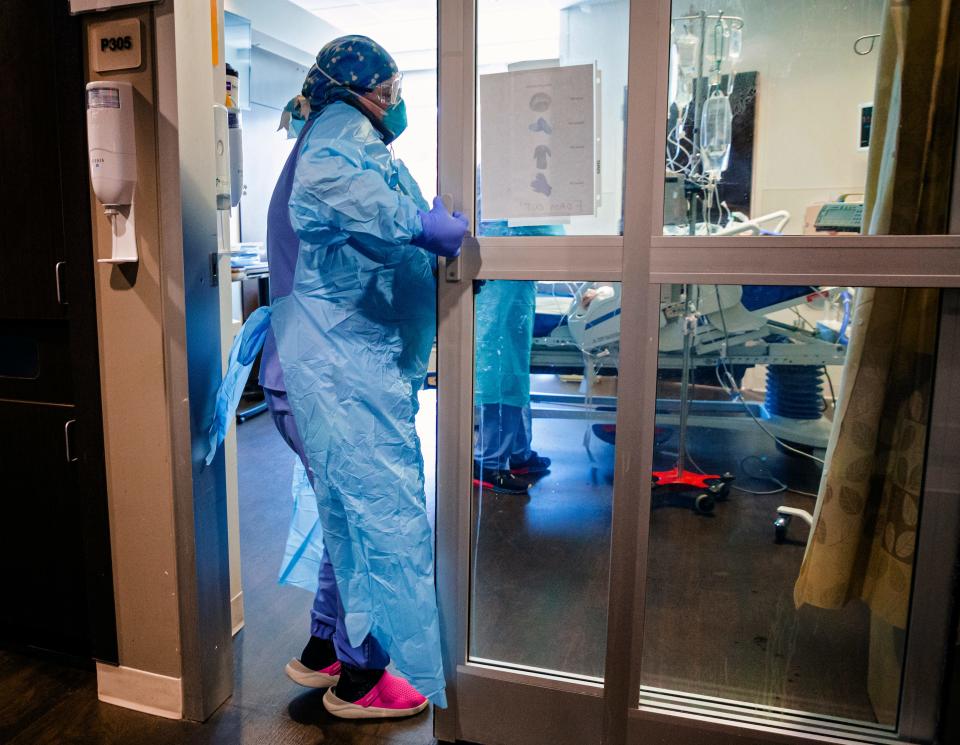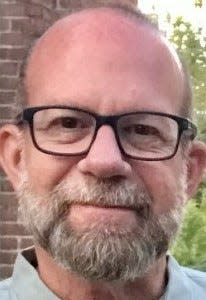Guest: We’ve turned the corner on the pandemic. But we can’t turn our backs on those we lost.
Twenty-eight years ago, Gov. Frank Keating helped guide us through the aftermath of the Oklahoma City bombing. Along with Mayor Ron Norick, Keating’s empathetic leadership ensured we would never forget the people we lost in that tragedy ― that we would channel this grief into an indomitable resolve.
Nowhere is this better illustrated than the Oklahoma City National Memorial & Museum. The tone is pitch-perfect. Every detail has been carefully considered. Every decision is faced with utmost solemnness. Executive Director Kari Watkins and her team are keepers not only of a place and its artifacts; they’re the curators of our memories, caretakers of our emotions.
Every meeting at the memorial starts with a moment of silence, “to remember those who were killed, those who survived, and those changed forever.” It’s a way to keep the memorial’s staff and volunteers centered, to keep the compass pointed in the right direction.
Now, let’s talk about a different tragedy.
It’s been three years since Utah Jazz center Rudy Gobert tested positive for COVID before tip-off against the Oklahoma City Thunder, starting a domino effect that would close businesses, shut schools, cripple the economy and, for many, trigger months of emotional anguish.
But the greatest toll was the lives we lost ― friends, family, neighbors. Oklahoma was hit especially hard. We had the second-most deaths per capita of any state in the country. As of this writing, 17,827 Oklahomans have died from COVID. That’s roughly the population of Ada, the seat of Pontotoc County.
Gone.

And yet, to hear some of our state leaders talk, we weathered the pandemic quite well. Their only measure seems to be how rapidly schools and businesses reopened. Granted, we craved normalcy, and the measures we took to safely return to “normal” were extraordinary. But we cannot ignore reality. During a humanitarian crisis, we need leaders who can project optimism and resilience. We need to be shown a pathway through crisis. And we need to see empathy ― like we saw from Keating, and from President Franklin Roosevelt during the Great Depression, and President George W. Bush after 9/11.
How will we remember those we lost during the pandemic? How do we ensure that their names — their faces, their legacies, their memory ― aren’t forgotten in a fog of political one-upmanship? Three of my friends died from the coronavirus. I’ll bet you lost friends and family members, too. Each of them deserves a public remembrance ― a park, a memorial, a plaza. It doesn’t have to be elaborate. The beauty of the Vietnam Memorial is its simplicity.
Respect and reverence. That’s the goal.
We’ve finally turned the corner on the pandemic. But we can’t turn our backs on those we lost. It’s time for our state to treat the pandemic like the tragedy that it was. It’s time to acknowledge that not everyone weathered the storm — that each loss creates a ripple of grief that never dissipates.
For 17,827 of our fellow Oklahomans and their families, it’s the least we can do.

Russ Florence lives and works in Oklahoma City. His column appears monthly in Viewpoints.
This article originally appeared on Oklahoman: How will we choose to remember Oklahoma lives lost during COVID?

